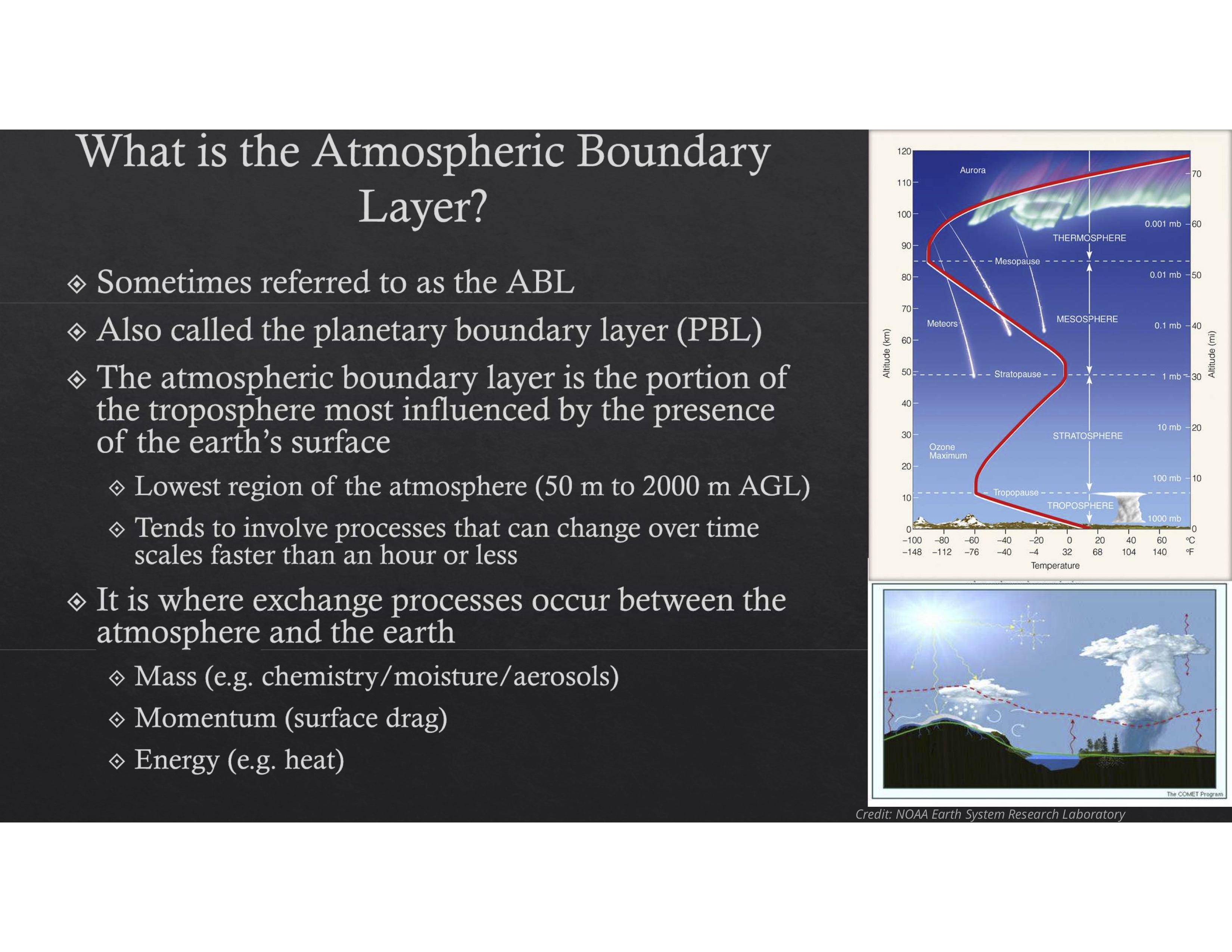Lesson 7: Introduction to the Atmospheric Boundary Layer
Overview of the content
This lesson introduces the atmospheric boundary layer, its dependence on the surface energy balance, and what the potential impacts of the total eclipse might be on it.
Learning objectives
- Introduction to the concept of the atmospheric boundary layer.
- Be aware of the surface energy balance and how it influences the boundary layer behavior
- Understand the possible impacts of the solar eclipse and how these impacts could change depending on different circumstances
Background information for the instructor
- It may be useful to review the different modes of heat transfer (conduction, radiation, convection) in order to understand the different ways that heat is exchanged between the sun, surface and air near the surface.
- Understanding how density is related to temperature, and the buoyancy of air will help to understand how stable and unstable conditions can form.
Atmospheric Boundary Layer
The Atmospheric Boundary Layer (or ABL and also know as the Planetary Boundary Layer or PBL) is the lowest region of the atmopshere -- 50 to 2,000 meter above ground level (AGL). It is the portion of the troposphere most influenced by the presence of the earth's surface. It tends to involve processes that can change over time scales faster than one hour or less.
The video content and the glossary below offer an overview of the Atmospheric Boundary Layer.

Introduction to the Atmospheric Boundary Layer -- by Dr. Sean Bailey, University of Kentucky [YouTube video, 33 min, Closed Captioned] Learn about the daily cycle of the boundary layer and the possible effects of an eclipse.
Access / download the slide deck for Introduction to the Atmospheric Boundary Layer
Discussion questions for class
-
Dicsuss how different weather conditions and time of day can influence the effect of the eclipse on the atmospheric boundary layer
Additional Resources
Glossary of terms
Useful reading
Introduction to Boundary Layer Meteorology by Stull (Springer)
NOTE: This book is older and is available for free download in several locations online. If the link above does not work, please search for "Introduction to Boundary Layer Meteorology free download"
![]() Don't forget to track today's progress in your portfolio
Don't forget to track today's progress in your portfolio
Will you take a few minutes to give us some feedback on this lesson? Thank you!
